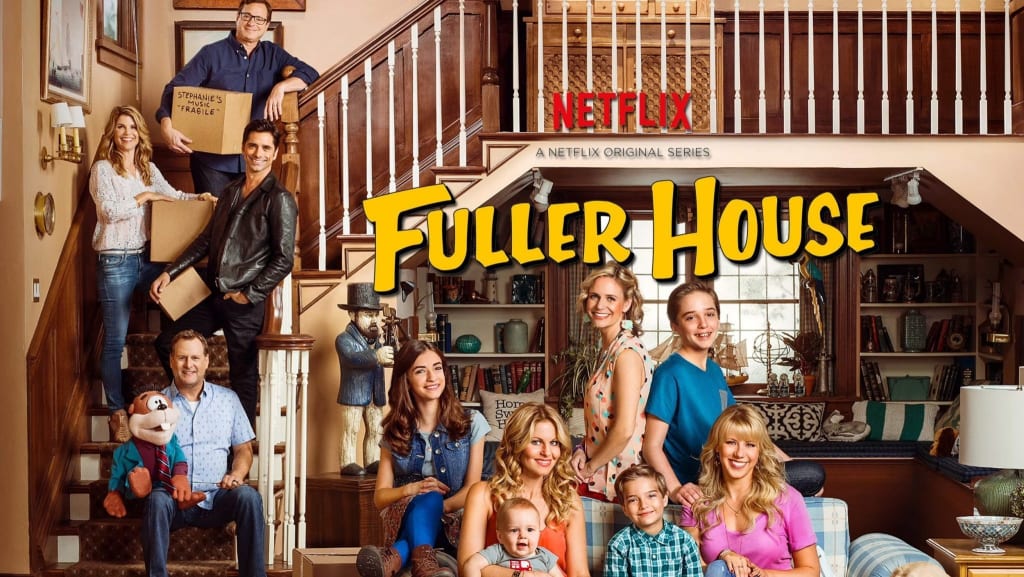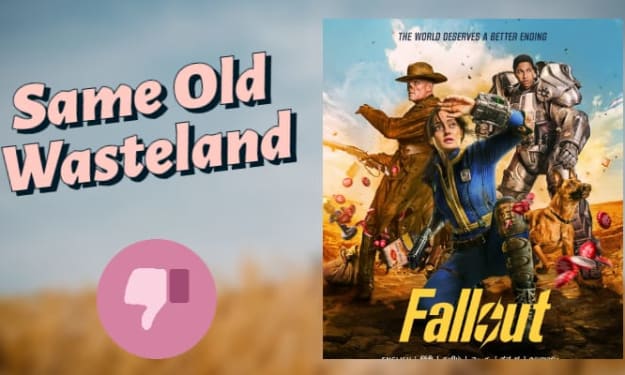'Fuller House' and the Nostalgia Factor
Why audiences will continue to watch this reboot despite it falling flat.

I grew up watching Full House late at night on Nickelodeon. I would sit in front of the television with my parents, and my mom would croon over Uncle Jesse while my dad worked on his computer. I would wish I lived in San Francisco in the 80s and 90s and I would be jealous of how large and close-knit their family was. Despite the cheesy music that played during the shows cyclic emotional moments, I would continue watching. The show in itself was a huge part of my childhood.
I remember a particularly touching — and surprisingly deep — episode where DJ fought with body insecurities and developed a short-lived eating disorder. For a show typically so light-hearted to touch on such an emotional topic — a topic that eventually I would have to face (not personally, but through the eyes of friends) — a topic that was very real, even to a girl living in Florida, was important. This show was important to me, and watching the re-runs and the characters change and grow over time was important to me.
Full House did many things right, and for most people — myself and my friends included — it is a true classic. People love classics. People love nostalgia. People love to look back on memories and try to relive them through photos and videos.
People love when their old favorite television shows make comebacks.
Will & Grace is one of the television shows my mom used to love. When I recently got lunch with her and my grandmother, they talked about the revival series endlessly — with admiration and some criticism.
I know people that would give an arm and a leg for another season of Gossip Girl or Gilmore Girls. I'm sure there would be a solid few thousand people that would fight for a Friends reboot if it were possible.
Fuller House is the reboot a lot of people wanted but weren't sure they would get — and now that they have it and they've experienced it, many people want it to stop, including myself.
Something about this new, modern story just doesn't work. It isn't cohesive. This family, while living in the same house but in a much different year (and with the loss of so many cast favorites and several not-so-great additions), doesn't have the same feeling as the old one. Its script falls flat, while trying to attempt picks and pokes at the same cultural references the original show succeeded in. While the 80s/90s Full House incorporated so much of that current culture into the show, something about the new 2017 vibe of this San Francisco family does not hold the same leverage.
It just isn't as powerful.
Seeing the Fuller House kids dab and nae-nae and make Donald Trump jokes isn't funny. It's cringy. That kind of desperation to be relatable and relevant makes this show much less relatable and relevant than it would be without it. It is trying so hard to diverge from its source material and become a new beast that it fails to own up to the thing that has made it popular: the original Full House.
It uses the same unconventional family structure to support its constant antics, but it relies on cheap jokes and references to fuel its audience reactions. I'm not laughing while watching this show; I'm shaking my head as I watch DJ scoop up her youngest son and chase Fernando around the house in high heels and denim shorts — an outfit I would never see an actual mother wearing on a weekend at home.
Besides the bad dance moves and the meme references, this show continues to succeed.
I can't lie: I watched all three seasons for the nostalgic purposes. I watched all three seasons because I craved a look at the family I adored in my childhood, and how they were living in present-day San Francisco. I watched it for the nostalgia — as most other viewers have.
Nostalgia drives much of current media. Reboots of shows like Will & Grace and revivals like Fuller House were requested after they proved they would be profitable due to fan devotion. Stranger Things and IT both relied on 80s culture and nostalgia to capture and reel in an initial audience. People love to take a look back at the past and relive their olden, golden days: and this is why shows based on that nostalgia factor will continue to succeed.
About the Creator
cassidy bowen
permanently vacationing in florida and listening to thriller on repeat






Comments
There are no comments for this story
Be the first to respond and start the conversation.